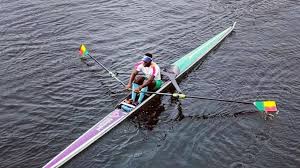
The 2025 National Rowing Championship, anticipated as one of the year’s premier sporting events, ended in unprecedented turmoil as only two teams participated.
The majority of clubs, referees, and even some members of the executive committee boycotted the competition, raising concerns about governance within the Beninese Rowing Federation (FBA).
Industry insiders suggest that the boycott reflects more than mere protest. Many athletes and officials report feeling excluded from key decisions affecting their sport. “There is a growing frustration with contested governance,” one source explained.
“Players and coaches feel disconnected from the decisions that shape their discipline, and this disconnect is widening the gap between the grassroots and leadership.”
Observers say the situation signals a broader problem beyond the sporting arena. Several voices are calling for urgent intervention from supervisory authorities, including the Ministry of Sports and the Beninese National Olympic and Sports Committee (CNOSB).
Experts recommend an independent audit of the federation followed by a comprehensive overhaul of management structures to restore transparency and accountability.
“This championship boycott is not insignificant,” a sporting official said. “It reflects the urgent need for a collective awakening. Without proper oversight, the efforts of practitioners and coaches risk being wasted.”
The disruption has sparked concern for the future of rowing in Benin, a sport that has historically contributed to national pride and regional competition. Analysts warn that if governance issues are not addressed swiftly, athletes will be the first to suffer, with morale, training standards, and competitive opportunities all at risk.
The ball is now in the court of the authorities. Whether decisive action will be taken to stabilize the federation and protect the interests of athletes remains to be seen. The outcome of this crisis could determine whether Beninese rowing recovers or continues its downward trajectory.



